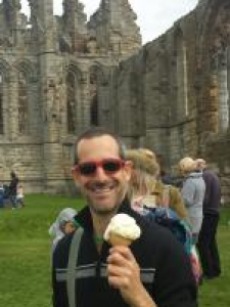
Home Department: Linguistics
SLAT Areas of Specialization: Cognitive Dimensions of L2 Learning, Linguistic Dimensions of L2 Learning, Sociocultural Dimensions of L2 Learning
Dr. Ussishkin's research interests center around the structure of the lexicon, and involve the application of psycholinguistic techniques to study lexical organization and processing. The languages that form the basis for this research are primarily Semitic languages, most notably Maltese and Modern Hebrew, and together with doctoral students he's also been involved in work on Amharic, Sana'ani Arabic, Moroccan Arabic, Jordanian Arabic, and Khalka Mongolian. His recent NSF-funded research on Hebrew and Maltese tested the psycholinguistic reality of traditional elements of Semitic grammar such as the triconsonantal root and the word pattern.
Dr. Ussishkin use the auditory masked priming technique in order to investigate the extent to which language processing involves early and automatic parsing of these elements. In his lab, he and his students are also applying this methodology investigating English spoken word recognition to explore the parameters and limits of this technique. This work is connected with several collaborative corpus-building projects, in which he is building corpora and testing corpus representativeness as well as correlations between corpus measures and psycholinguistic behavior.
Within formal linguistics, Dr. Ussishkin's principal area of interest is the intersection between phonology and morphology. His early training is in phonological theory, and within this domain, most of his work focused on prosodic morphology, or the interaction between word formation and prosodic restrictions.
Visit Dr. Ussishkin's website at ussishkin.org for up to date information and current CV. In addition to being a professor in the Department of Linguistics, he also has appointments in the UA Cognitive Science program, the UA Second Language Acquisition and Teaching program, the Department of Middle Eastern and North African Studies, The Arizona Center for Judaic Studies, and the Center for Middle Eastern Studies.

